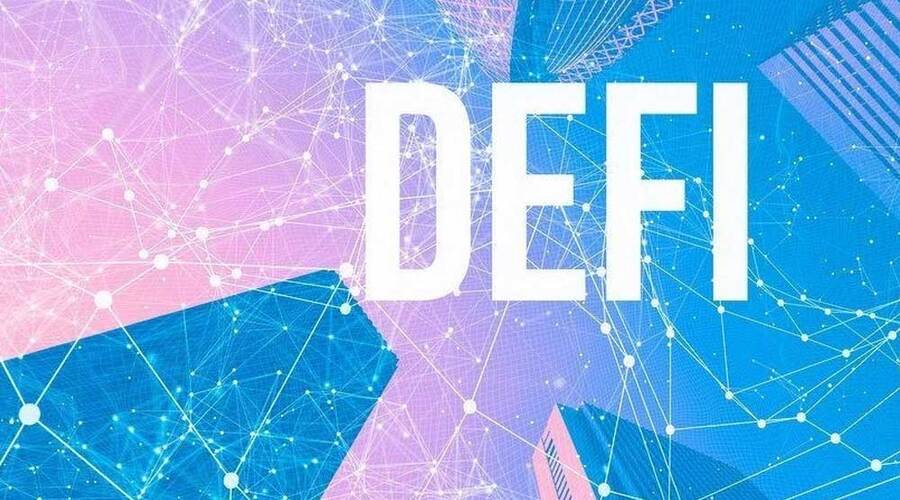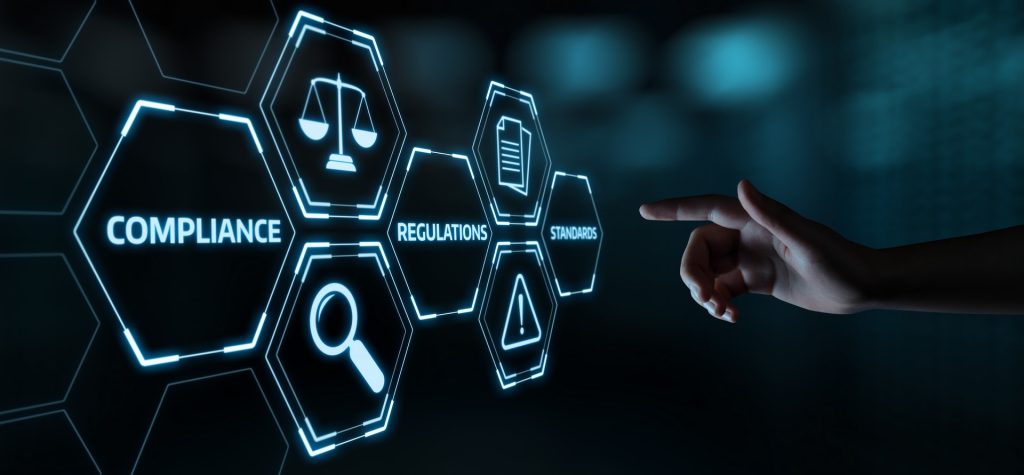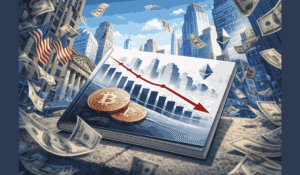The Future of DeFi: Innovations and Safeguards against Rug Pull Scams

The Future of DeFi: Innovations and Safeguards against Rug Pull Scams
Decentralized Finance (DeFi) has captured the imagination of the financial world, offering new opportunities and disrupting traditional systems. However, the rise of rug pull scams has highlighted the need for continuous innovation and enhanced safeguards within the DeFi ecosystem. In this article, we will explore the future of DeFi, focusing on the innovations and safeguards being developed to combat rug pull scams and ensure a secure and sustainable future for decentralized finance.
Enhanced Smart Contract Auditing
Smart contract auditing is a critical component of mitigating rug pull risks. In the future, we can expect enhanced auditing techniques and tools that go beyond traditional code reviews. Advanced technologies such as formal verification, which mathematically prove the correctness of smart contracts, and AI-based analysis can help identify vulnerabilities and potential exploits. These innovations in auditing can significantly reduce the likelihood of rug pull scams by ensuring the robustness and security of smart contracts.
Decentralized Oracles and Data Feeds
The reliance on accurate and reliable data is crucial in the DeFi ecosystem. Decentralized oracles and data feeds act as trusted sources of information for smart contracts, providing real-world data that informs crucial financial transactions. Future advancements in decentralized oracles will focus on enhancing security, scalability, and resilience against manipulation. By leveraging decentralized oracles, DeFi protocols can reduce the risk of rug pull scams based on manipulated or unreliable data sources.
DeFi Insurance Solutions
DeFi insurance is emerging as a promising safeguard against rug pull scams. Insurance protocols specifically designed for DeFi offer coverage against various risks, including rug pulls and smart contract exploits. These insurance solutions provide financial protection to investors, reimbursing their losses in case of fraudulent activities. In the future, we can expect the growth of DeFi insurance, with more comprehensive coverage options, increased participation from insurance providers, and the integration of insurance mechanisms directly into DeFi platforms.
Improved Due Diligence Tools and Platforms
Investor due diligence is a vital defense against rug pull scams. Future innovations will focus on improving due diligence tools and platforms, enabling investors to assess the credibility and security of DeFi projects more effectively. These tools may include comprehensive project analysis, code audits, risk assessments, and community sentiment analysis. By providing investors with better insights and information, due diligence tools empower them to make informed decisions and avoid fraudulent projects.
Regulatory Frameworks and Industry Standards

Regulatory frameworks and industry standards will continue to evolve to address the challenges posed by rug pull scams. Governments and regulatory bodies are expected to refine existing regulations or introduce new ones specific to DeFi. These frameworks will enforce transparency, compliance, and investor protection measures, creating a more secure and regulated DeFi landscape. Industry-wide standards will also emerge, ensuring best practices and fostering trust among participants in the DeFi ecosystem.
Continued Education and Awareness
Education and awareness initiatives will play a crucial role in the future of DeFi. As the industry evolves, it is important to educate investors about the risks and best practices to protect themselves against rug pull scams. Industry organizations, projects, and regulatory bodies will collaborate to develop educational resources, training programs, and campaigns to enhance awareness and promote responsible participation in DeFi. Continuous education will empower investors and contribute to the overall security of the ecosystem.
Decentralized Governance and Community Involvement
Decentralized governance and active community involvement are vital for the future of DeFi. Governance protocols that enable token holders to participate in decision-making processes and vote on important matters ensure that the interests of the community are represented. In the future, we can expect further development of decentralized governance mechanisms, empowering participants to shape the direction of DeFi projects and set standards for security, transparency, and risk management.
Third-Party Auditing and Certification Services
Third-party auditing and certification services are emerging to provide independent verification of the security and reliability of DeFi projects. In the future, we can expect the growth of specialized auditing firms that conduct comprehensive assessments of smart contracts, security protocols, and project operations. These audits provide an extra layer of confidence for investors, signaling that a project has undergone thorough scrutiny and meets industry best practices.
Interoperability and Cross-Chain Solutions
Interoperability and cross-chain solutions are crucial for the future of DeFi, enabling seamless integration and communication between different blockchain networks. As the DeFi ecosystem expands, interoperability will facilitate the transfer of assets and liquidity across various platforms, reducing the risk of rug pull scams associated with isolated networks. Cross-chain solutions will enhance security and liquidity, promoting a more interconnected and robust DeFi landscape.
Enhanced Identity and KYC Solutions
Identity verification and Know Your Customer (KYC) processes are essential for preventing fraudulent activities in DeFi. Future innovations will focus on enhanced identity solutions that provide a secure and reliable means of verifying user identities while preserving privacy. These solutions may incorporate advanced cryptographic techniques and decentralized identity frameworks to strike a balance between user privacy and regulatory compliance, reducing the risk of rug pull scams originating from anonymous or malicious actors.
Continuous Security Audits and Bug Bounties
Continuous security audits and bug bounty programs are crucial for identifying vulnerabilities and strengthening the security of DeFi protocols. In the future, we can expect more frequent and rigorous security audits to proactively detect and address potential risks. Additionally, bug bounty programs incentivize the wider community to participate in identifying and reporting vulnerabilities, offering rewards for responsible disclosure. These measures create a collaborative and proactive approach to security, reducing the likelihood of rug pull scams.
Reputation Systems and Social Proof
Reputation systems and social proof mechanisms are emerging as important tools for mitigating rug pull scams. These systems allow participants to rate and provide feedback on DeFi projects, providing valuable information about their credibility and trustworthiness. In the future, we can expect the development of reputation systems that incorporate verifiable data and utilize advanced algorithms to assess the reputation of projects and project teams. Social proof mechanisms can help investors make informed decisions and reduce the risk of falling victim to rug pull scams.
Decentralized Governance Standards and Interoperability
Standardization of decentralized governance mechanisms and interoperability protocols will be crucial for the future of DeFi. As the ecosystem grows, it becomes essential to establish common standards for governance processes, voting mechanisms, and decision-making frameworks. Interoperability protocols will enable seamless interaction between different DeFi platforms, facilitating the flow of assets, liquidity, and information. These standards and protocols contribute to the overall stability and security of the DeFi ecosystem, reducing the potential for rug pull scams.
Predictive Analytics and Risk Assessment Models
Predictive analytics and risk assessment models can play a significant role in identifying potential rug pull scams before they occur. These models utilize advanced data analysis techniques and machine learning algorithms to identify patterns, anomalies, and indicators of fraudulent activities. By analyzing historical data, market trends, and project characteristics, predictive analytics models can provide early warnings and risk scores to investors, allowing them to make more informed investment decisions and avoid fraudulent projects.
Enhanced Security Token Offerings (STOs)
- Regulated fundraising mechanisms
- Tokenization of traditional assets on the blockchain
- Advancements in STOs: regulatory compliance, investor protections, enhanced security features
- Benefits of STOs: regulated and transparent investment option, risk reduction, increased investor confidence
Reputation-based Staking and Collateral Systems
- Safeguards against rug pull scams
- Staking or collateralizing tokens based on reputation
- Rewards for trustworthy behavior, penalties for fraudulent activities
- Promotion of responsible behavior and identification of reliable actors
Regulatory Sandboxing for DeFi Innovation
- Encouragement of responsible experimentation
- Maintaining regulatory oversight in a controlled environment
- Testing new technologies, products, or business models
- Future establishment of regulatory sandboxes
- Balancing innovation and investor protection
- Development of secure and compliant DeFi solutions
Cross-Industry Collaboration and Knowledge Sharing
Cross-industry collaboration and knowledge sharing are essential for addressing the challenges of rug pull scams. Governments, regulatory bodies, industry associations, academia, and technology experts should collaborate to share insights, best practices, and research findings. This collaborative approach fosters a collective understanding of rug pull scams, encourages the development of effective solutions, and promotes the adoption of standardized practices across the broader financial ecosystem.
Decentralized Dispute Resolution Mechanisms
Decentralized dispute resolution mechanisms provide a fair and efficient way to resolve conflicts and address fraudulent activities in DeFi. In the future, we can expect the development of decentralized platforms that enable transparent and binding arbitration processes for dispute resolution. These mechanisms leverage blockchain technology and smart contracts to ensure the integrity of the resolution process and provide a trusted environment for settling disputes, reducing the risks associated with rug pull scams.
Conclusion
The future of DeFi holds great promise, with innovations and safeguards being developed to combat rug pull scams and strengthen the ecosystem. Enhanced smart contract auditing, decentralized oracles, DeFi insurance solutions, improved due diligence tools, regulatory frameworks, and continued education will shape a secure and sustainable DeFi landscape. By embracing these advancements, the DeFi community can build trust, attract more participants, and unlock the full potential of decentralized finance.

I have been in the industry for over 5 years. I know all the latest news and what is going on with different coins. I write about Bitcoin, Ethereum, Litecoin, and more.








